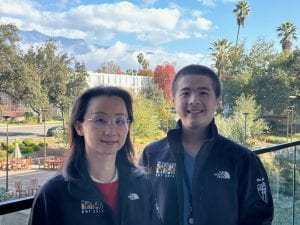
As people age or become ill, their immune systems can become exhausted and less capable of fighting off viruses such as the flu or COVID-19. In a new mouse study funded in part by the National Institutes of Health (NIH) and published in Science Advances, researchers from the USC Stem Cell lab of Rong Lu describe how specific gene activity could potentially enhance immune cell production.
“Hematopoietic stem cells, or HSCs, produce blood and immune cells, but not all HSCs are equally productive,” said the study’s corresponding author Rong Lu, PhD, who is an associate professor of stem cell biology and regenerative medicine, biomedical engineering, medicine, and gerontology at USC, and a Leukemia & Lymphoma Society Scholar. “We wanted to understand the mechanism of why some stem cells produce more immune cells, while other stem cells produce fewer.”
With this goal in mind, first author Du Jiang, PhD, and his colleagues in the in the Lu Lab at the Keck School of Medicine of USC pioneered new techniques for understanding the quantitative association between immune cell production and gene expression in lab mice. The scientists labeled individual stem cells with genetic “barcodes” to track their immune cell production. They then correlated the barcode tracking with measurements of gene expression activity. They also developed innovative bioinformatics approaches to characterize their quantitative association.
By leveraging these technical advances, the scientists identified nearly 40 genes—including genes associated with diseases such as myelodysplastic syndrome, a type of cancer caused by abnormal blood-forming cells—that are related to immune cell production. They discovered associations between the activity of these genes and both the quantity and variety of immune cells produced. For example, certain genes are associated with the production of lymphoid cells, others with myeloid cells, and still others with a healthy balance of various immune cell types.
To read more, visit https://stemcell.keck.usc.edu/study-shows-how-gene-activity-modulates-immune-cell-production.
